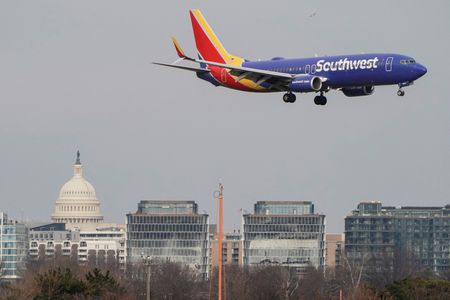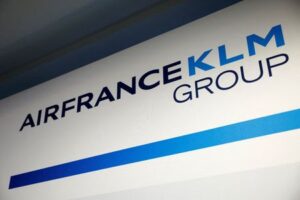By David Shepardson
WASHINGTON (Reuters) – Southwest Airlines said on Tuesday it will support legislation to add seven new round trip flights a day at Ronald Reagan Washington National Airport, an issue that has been fiercely contested by major U.S. airlines.
American Airlines, United Airlines and Alaska Airlines have strongly opposed adding flights to airport arguing to it would boost congestion and lead to more delays, while Delta Air Lines strongly supports adding more flights to boost competition. Southwest said in an email to congressional staff Tuesday the proposal would increase daily flights at Regan by less than 2% and argued the “modest increase in flight activity can be accommodated.”
A bill to reauthorize the Federal Aviation Administration (FAA) is set to be voted on this week in the U.S. House.
Southwest backed an amendment introduced by Republican Burgess Owens to the FAA bill. Owens said the proposal equates to one route for each airline currently operating out of the airport, and “mitigates the high-cost millions of Americans must budget to visit our national capital.”
United Airlines said Tuesday that adding more flights “would only serve to increase delays and cancellations.”
Reagan is about four miles from Capitol Hill, which makes it popular with lawmakers, tourists and local residents. In the 1960s, the federal government restricted flights at Reagan National to manage congestion and delays at the airport and direct longer flights to Dulles. The so-called “perimeter rule” limits most non-stop flights serving Reagan National to a distance of 1,250 miles.
Congress previously exempted 20 round-trip flights to airports more than 1,250 miles from Reagan National (DCA).
Virginia senators Mark Warner and Tim Kaine said prior flights added by Congress to Reagan “have produced significant stress on DCA’s facilities, from strained roadways and limited parking availability to overburdened baggage systems, and created frustrations for travelers, businesses, and local residents.”
(Reporting by David Shepardson, Editing by Nick Zieminski)





